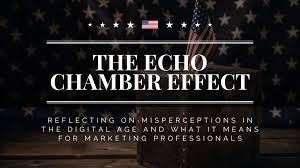In a world saturated with digital noise, consumers have become masters of avoidance. They skillfully navigate past generic advertisements and delete impersonal marketing emails without a second glance. The traditional approach of broadcasting a single, uniform message to a vast audience is quickly becoming a relic of the past. To capture attention and build meaningful relationships, businesses must pivot to a more intelligent and personalized strategy: one-on-one marketing. This approach abandons the monologue of mass advertising in favor of a genuine dialogue, treating each customer as a unique individual.
This shift represents more than just a new set of tactics; it is a fundamental reorientation of a brand’s relationship with its customers. It involves harnessing data and technology not to interrupt, but to serve, anticipate, and deliver value at every turn. By tailoring experiences to the specific needs and preferences of each person, companies can cultivate a deep sense of loyalty that standardized campaigns can never hope to achieve. This article will explore the core principles of one-on-one marketing and provide a practical guide for implementing this customer-centric philosophy to drive sustainable growth.
Crafting the Customer-Centric Narrative
The essence of one-on-one marketing is personalization that resonates on a human level. This goes far beyond the superficial tactic of inserting a contact’s first name into an email greeting. True personalization is born from a deep understanding of a customer’s entire journey, their purchase history, their expressed interests, and even their unrealized needs. For instance, if a customer purchases a new set of cookware, a brand could follow up with personalized content like a collection of recipes suited to the new equipment, tips for proper care, or an exclusive offer on a matching knife set. This level of attentiveness demonstrates that you see the customer as an individual and are invested in their experience.
To deliver these tailored interactions, businesses must become adept at ethically collecting and interpreting customer data. Every website click, product review, support query, and social media engagement is a valuable piece of a larger puzzle. When you assemble these pieces, you create a detailed, living profile of each customer. Consequently, this allows you to move beyond broad demographic segments and engage in communications that are truly context-aware. This data-driven approach empowers you to speak with customers about what is most relevant to them, making them feel seen and valued rather than just being a target in a sales funnel.
The Pillars of a Unified Experience
An effective one-on-one marketing strategy is supported by several critical pillars that must work together in harmony. The first is a consolidated data infrastructure, often called a single customer view. This requires breaking down the information silos that typically separate departments like marketing, sales, and customer service. When all customer data from every touchpoint—be it online, in-store, or through a call center—is integrated into one unified profile, you can create a truly intelligent and seamless journey. This prevents common missteps, like sending a “we miss you” email to a customer who made a purchase just yesterday.
The second crucial pillar is intelligent automation. It’s simply not feasible to manually manage personalized relationships with thousands, let alone millions, of customers. This is where marketing automation platforms become essential. These tools can trigger timely and relevant communications based on specific customer behaviors, such as sending a welcome guide to new users, reminding them of an upcoming appointment, or offering a loyalty reward on their anniversary. The key is to use automation as a tool to scale thoughtfulness, making your brand feel more responsive and human at every step, not more robotic.
Assembling the Modern Marketer’s Arsenal
To put a one-on-one marketing strategy into action, you need the right set of technological tools. The Customer Relationship Management (CRM) system is the undeniable centerpiece of this technology stack. A well-implemented CRM acts as your organization’s collective memory, storing every piece of customer information, from initial contact details to the full history of interactions and transactions. It provides a single source of truth for your entire team, enabling consistent, context-aware engagement that builds on every previous conversation a customer has had with your brand.
Working in concert with a CRM, advanced email marketing platforms and robust data analytics software are also indispensable. Modern email solutions provide powerful capabilities like dynamic content, which allows a single email campaign to be customized for each recipient based on their data. For example, a fitness brand could send a newsletter that shows marathon training tips to registered runners and yoga routines to those who have attended a class. For companies seeking to master these tools, engaging with an agency that focuses on marketing 1on1 can provide the expert guidance needed to select the right technology and build a winning strategy.
Navigating the Intricacies of Personal Connection
While the advantages of one-on-one marketing are enormous, the approach comes with its own set of challenges that must be handled with care. One of the most significant hurdles is managing data privacy and earning customer trust. Consumers are often willing to share their data in exchange for better, more relevant experiences, but they are also rightly concerned about how their information is being used. It is imperative for businesses to be transparent about their data policies and to give customers clear, easy-to-use controls over their information. A single breach of trust can inflict permanent damage on a brand’s reputation.
Another common challenge is walking the fine line between helpful personalization and intrusive surveillance. A product recommendation based on something you recently viewed is generally seen as a helpful convenience. An ad that seems to know about a private conversation can feel deeply unsettling. To stay on the right side of this boundary, every personalization effort must be focused on delivering clear and tangible value to the customer. Personalization should always feel like a service designed to solve a problem or anticipate a need, not a tactic to exploit data for a quick sale. The relationship must be built on a foundation of respect.
Building Lasting Bonds in a Digital World
Adopting a one-on-one marketing philosophy is a long-term strategic commitment, not a short-term tactical play. The initial investment in technology, strategy, and training can be substantial, but the returns are compounding and designed for longevity. By cultivating genuine, individual relationships with your customers, you create a form of loyalty that is resilient to competitive pricing and market noise. These loyal customers are not only more likely to make repeat purchases, but they also become powerful brand advocates, sharing their positive experiences with their friends, family, and social networks.
Looking ahead, the brands that will dominate their industries are those that master the art of humanizing their digital interactions at scale. As technologies like AI and machine learning continue to evolve, the possibilities for creating predictive, delightful, and deeply personal customer experiences will only grow. The companies that place individual relationships at the heart of their business model will not only survive but will thrive, building a strong and resilient customer base that provides a solid foundation for sustainable growth. By moving beyond the impersonal broadcast and embracing the power of personal dialogue, you can build a brand that people are proud to connect with.

